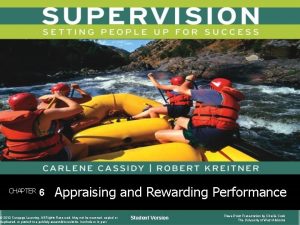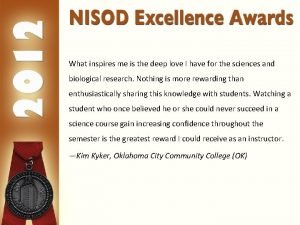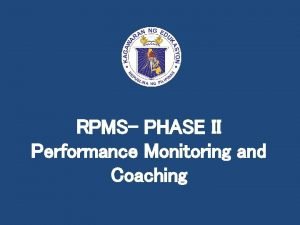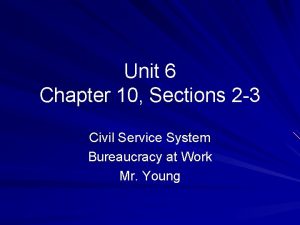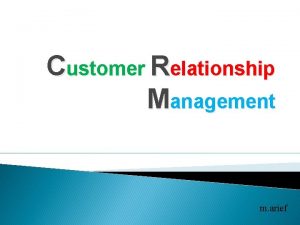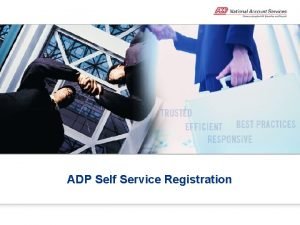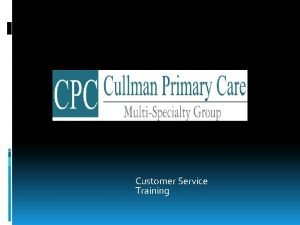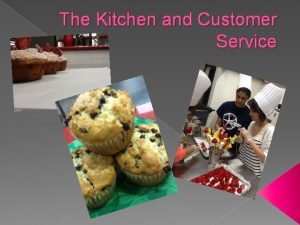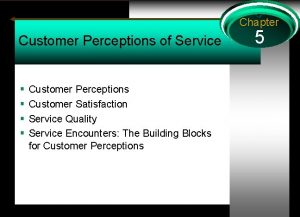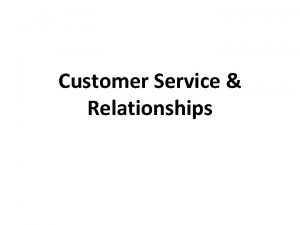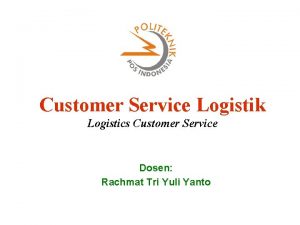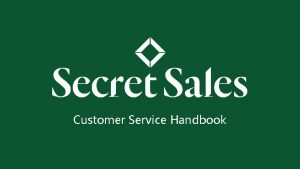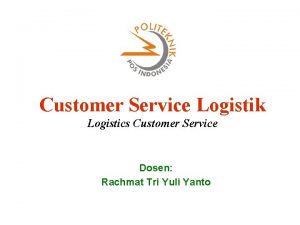The Institute of Customer Service Rewarding Customer Service


















- Slides: 18

The Institute of Customer Service Rewarding Customer Service “ The joy of working” Using reward & recognition to deliver your customer service strategy Stephanie Edwards International Business Advisor

Commissioned by: • Institute of Customer Service • Chartered Institute of Personnel & Development Carried out by: • Aston Business School • Professors Michael West & Gary Fisher

Aims • Identify impact reward & recognition practices have on customer service & satisfaction • Highlight which practices are most effective • Determine extent of employee satisfaction with rewards & recognition • Identify approaches to reward & recognition most associated with employee commitment and motivation • Understand how job design, training and development and employee characteristics can affect reward and recognition schemes

The Organisations • The public organisations included water, local authorities, local government • The not-for-profit organisations included charities, housing associations and leisure centres • The private organisations included financial services, manufacturing, hotels, education services, student accommodation services, recruitment agencies, telecommunication, building societies, and insurance. • The size of the organisations varied from 37 up to 62, 000 employees, 22 organisations used, 800 participants

Major Conclusions Organisations with the best customer service: • Make extensive use of performance related pay and team based reward & recognition • Emphasise career development of staff and work life balance issues

Other Major Findings In organisations with excellent customer satisfaction ratings: • Few differences between reward and benefits policies for managers & staff • Financial rewards more likely to be based on customer satisfaction and service quality rather than productivity • High levels of employee satisfaction

Non-variation of benefits • “our managers would feel quite strange about having different things” Kent Council • “For managers the same performance management system is used” Scottish Water • “At one point we had different holiday allowances, but we realised it’s important, as everybody’s working just as hard, to ensure that everyone has the same type of benefit” - Unite

Employee Satisfaction Employees in good customer service organisations see them as: • Fair • Looking after them • Consultative and open to suggestions • Involving them in decision making • Fair payers • Providing high levels of feedback • Warm & Supportive

But, salary is not enough Employees want: • Greater freedom and autonomy • Responsibility – to be more involved • Recognition • Praise • Achievement • Trust • Personal growth - ongoing learning and development, career “Satisfaction with pay is dependent on satisfaction with all other factors”

Work – Life Balance ideas • • Flexible start/finish times Individual control over hours of work Career-break schemes Term-time working contracts Childcare assistance – crèche/nursery Supported study Sabbaticals Home working

A Good Reward Policy has: • Market competitiveness • Internal equity and fairness • Individual/team rewards • Employee benefits • Reward priorities • A good mix for the “total reward”

A good reward policy will: • Establish clear relationship between pay and performance, competence and skill • Recognise achievement • Demonstrate that the organisation values skill development and competencies • Reinforce team and individual effort • Concentrate on the priority area • Attract and retain the best people • Improve pay competitiveness • Increase employee commitment

Conclusions • Reward & Recognition can only be understood in a cultural context • Employees must feel valued, respected and supported • Employees must be fairly treated and looked after • Important to monitor with regular employee surveys • Constantly seek ways to improve the well-being of employees, especially in work-life balance • Utilise employee knowledge of how customer service could be improved • Reward innovation • Staff enjoy working in organisations that emphasise the importance of good customer service • These actions should lead to much lower turnover – therefore career development plans take on even greater importance

Quote “With a diverse workforce, it has been important to provide a diverse recognition programme. We have taken a broad look at different things to reward staff. You might not want a bunch of flowers, but a bottle of wine or an afternoon off might be even better. ” Kent County Council

Case Study Torfaen Council: Introduced team based R & R in call centre • Lost calls fell from 66% to 4. 6% • Won National Customer Service Award – Frontline Team of the Year • Virtually nil turnover due to “commitment, motivation, and teamwork. They enjoy the work they do and have job satisfaction” Gloria Evans

Quote “In the context of increasingly competitive global and local environments, it is vital for an organisation’s survival and growth that customer service staff are motivated, innovative and are committed in their work. ”

Quote “If you wonder what getting and keeping the right employees has to do with getting and keeping the right customers, the answer is everything” Source: Fred Reichheld, The world’s leading loyalty expert

The Institute of Customer Service Final Message: • Develop a Customer Service Culture • Ensure your Customer Service Champion is in the Board Room • Your people are your PROFIT - invest in them • Motivate your staff through Reward & Recognition programmes • Join the HICS TODAY!
 Appraising and rewarding performance
Appraising and rewarding performance Most rewarding jobs
Most rewarding jobs Star approach
Star approach Victorious politicians rewarding of their followers
Victorious politicians rewarding of their followers Perbedaan customer relation dan customer service
Perbedaan customer relation dan customer service Adp self help
Adp self help Hát kết hợp bộ gõ cơ thể
Hát kết hợp bộ gõ cơ thể Ng-html
Ng-html Bổ thể
Bổ thể Tỉ lệ cơ thể trẻ em
Tỉ lệ cơ thể trẻ em Chó sói
Chó sói Chụp phim tư thế worms-breton
Chụp phim tư thế worms-breton Chúa yêu trần thế
Chúa yêu trần thế Kể tên các môn thể thao
Kể tên các môn thể thao Thế nào là hệ số cao nhất
Thế nào là hệ số cao nhất Các châu lục và đại dương trên thế giới
Các châu lục và đại dương trên thế giới Công của trọng lực
Công của trọng lực Trời xanh đây là của chúng ta thể thơ
Trời xanh đây là của chúng ta thể thơ Mật thư anh em như thể tay chân
Mật thư anh em như thể tay chân
